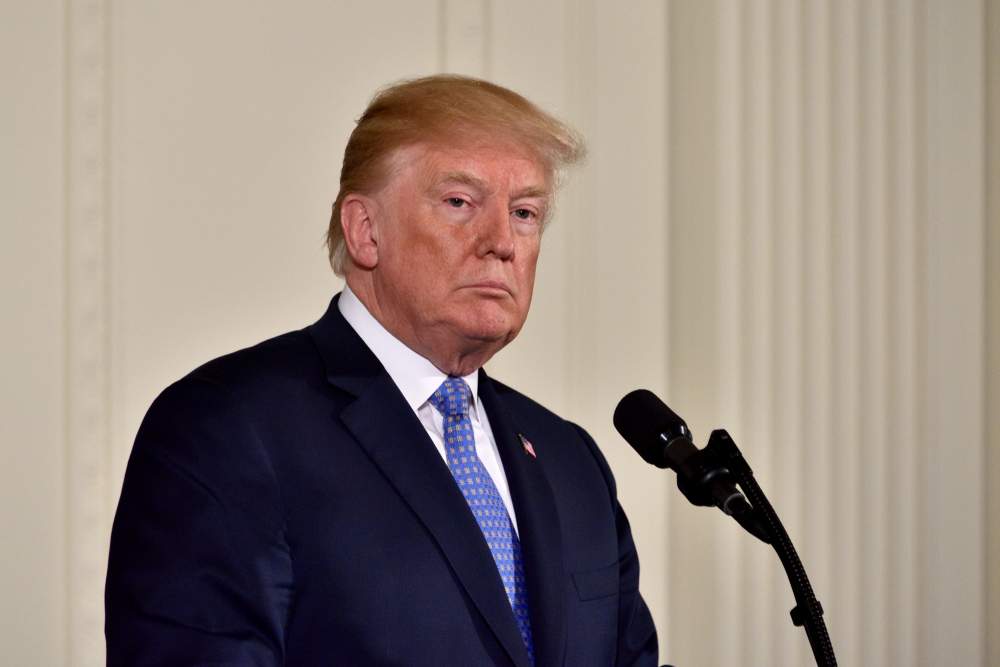The US Senate rejected a bipartisan resolution on June 27, 2025, that would have required President Donald Trump to seek Congressional approval before launching military action against Iran. The measure failed by a 53-47 vote, effectively preserving Trump’s ability to authorize strikes on Iranian targets without legislative oversight despite mounting tensions in the Persian Gulf.
The failed resolution represents a significant moment in the ongoing debate over presidential war powers, as lawmakers grapple with balancing executive authority against Congressional oversight responsibilities enshrined in the Constitution. The outcome gives Trump broad discretion to respond militarily to perceived Iranian threats without seeking legislative approval.
Constitutional authority clash emerges over war powers
The resolution aimed to enforce the 1973 War Powers Resolution by explicitly requiring Congressional authorization for any offensive military operations against Iran unless imminent threats to US security existed. Supporters argued this measure would restore Constitutional balance by ensuring Congress retains its authority over declarations of war.
Bipartisan sponsors expressed concerns about escalating US-Iran tensions following Trump’s deployment of additional naval forces to the Persian Gulf and public statements hinting at possible airstrikes on Iranian military infrastructure. The measure sought to prevent unilateral executive action that could commit the US to another prolonged Middle East conflict.
Democratic senators and several moderate Republicans supported the resolution as a necessary check on executive power, arguing that major military decisions require deliberative legislative input rather than singular presidential judgment. They cited historical precedents where unchecked executive authority led to costly and controversial military engagements.
Republican opposition preserves executive flexibility
Key GOP senators defended Trump’s position that presidents need operational flexibility to respond swiftly to hostile actions by adversaries like Iran. They argued that requiring Congressional approval for military responses could signal weakness to hostile actors and undermine deterrence effectiveness.
Senate Minority Leader Mitch McConnell and other Republican leaders contended that partisan resolutions could handicap presidential decision-making during crisis situations requiring rapid response. They emphasized that existing oversight mechanisms provide sufficient Congressional involvement without constraining executive authority.
Republican opponents also argued that the resolution could embolden Iranian aggression by creating uncertainty about US military intentions and response capabilities. They maintained that clear executive authority to act defensively protects American interests more effectively than legislative constraints.
Rising tensions provide immediate context
The vote occurred amid heightened US-Iran tensions following reported targeting of a US Navy drone by Iranian forces near the Strait of Hormuz earlier in June. This incident prompted increased military alerts and renewed discussions about potential military responses to Iranian provocations.
Trump announced he had delayed potential strikes on Iranian radar installations while allowing time for diplomatic solutions, but reserved his right to authorize military action if circumstances warranted. This position reflects his broader approach of maintaining pressure on Iran through sanctions and military posturing.
The standoff has revived debates about presidential war powers that have persisted since the Vietnam era, particularly regarding executive authority to initiate military action without explicit Congressional declarations of war. Trump’s withdrawal from the 2015 Iran nuclear deal and reimposition of sanctions have contributed to current tensions.
Legal and political battles continue
Despite the Senate defeat, advocates for limiting presidential war powers plan to reintroduce revised versions of the resolution, possibly as amendments to annual defense authorization legislation. House members have pledged to pursue similar legislative guardrails if tensions with Iran continue escalating.
Legal scholars suggest that unauthorized military action against Iran could face federal court challenges from watchdog groups or state governments seeking to enforce Congressional war powers. Such litigation could force judicial interpretation of executive authority limits in modern military conflicts.
The debate reflects broader questions about appropriate separation of powers in national security matters, particularly regarding how democratic oversight can function effectively in an era of rapid global communications and potential military escalation.
Future implications for military policy
The resolution’s failure establishes precedent for broad presidential discretion in military matters involving Iran, potentially extending to other regional conflicts where similar Constitutional questions might arise. This outcome may influence how future administrations approach military authorization and Congressional consultation.
The vote also demonstrates the partisan divide over foreign policy approaches, with Democrats generally favoring legislative constraints on military action while Republicans tend to support executive flexibility in national security matters.
Ongoing tensions with Iran will likely test the practical implications of this decision, particularly if military incidents escalate to levels requiring sustained US military engagement that exceeds traditional defensive measures or brief tactical responses.
















